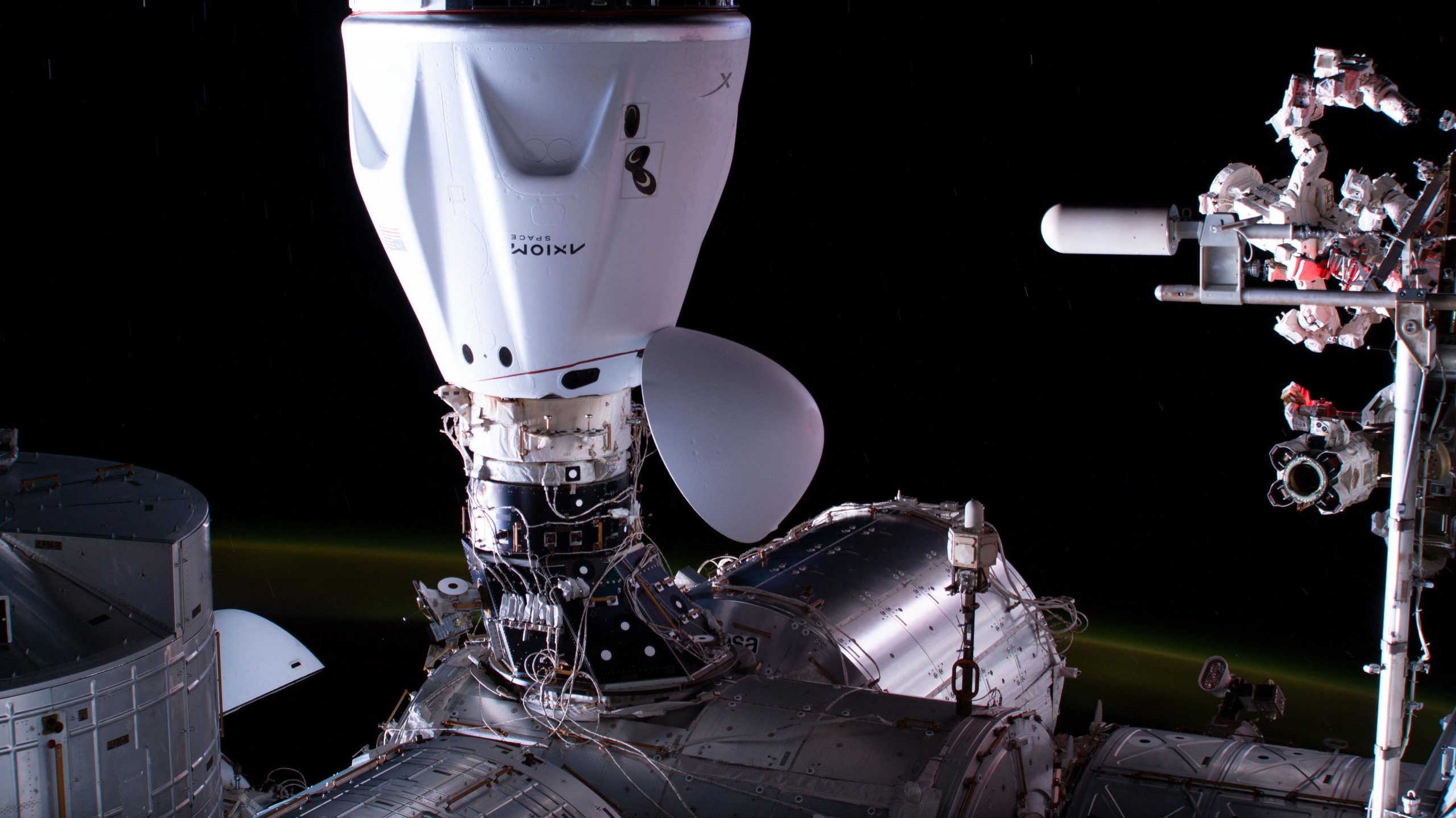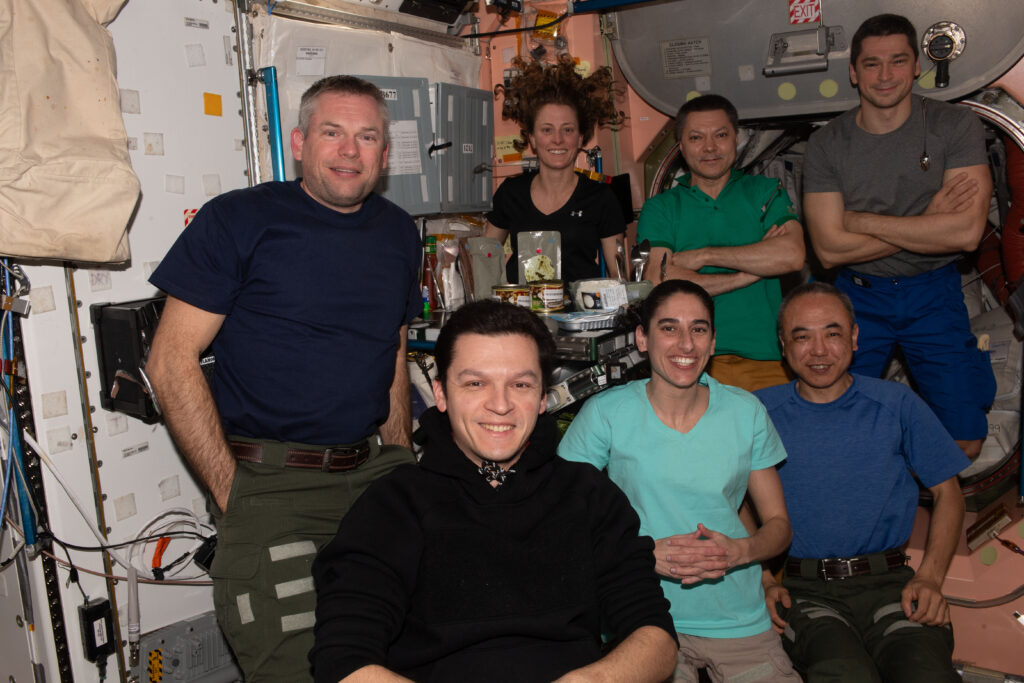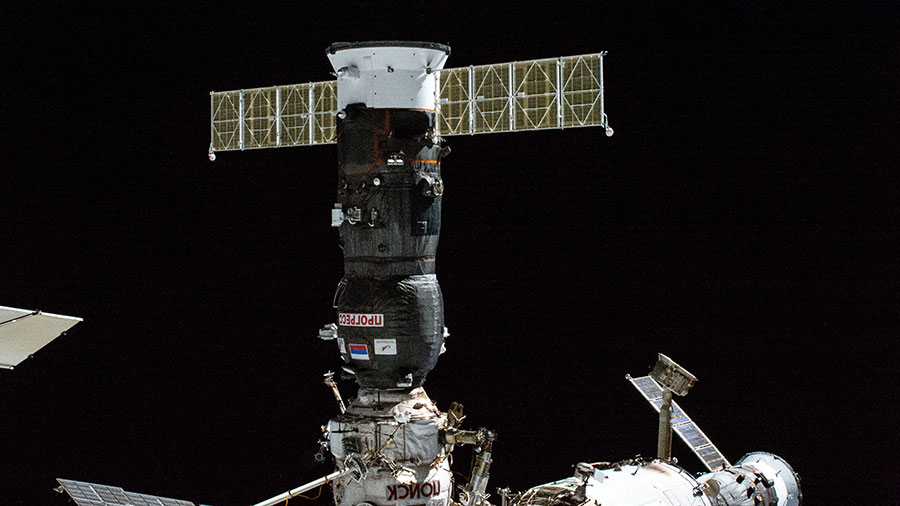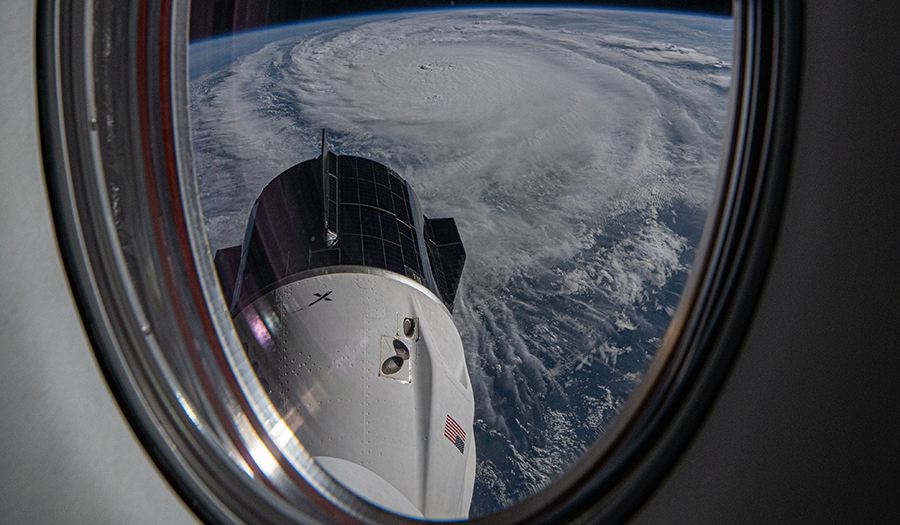
The Expedition 71 crew members continue packing the SpaceX Dragon spacecraft and preparing for its return to Earth this weekend. Meanwhile, the cosmonauts cleaned up following a successful spacewalk at the International Space Station on Thursday.
Mission managers are monitoring weather conditions off the coast of Florida and are now targeting no earlier than 12:05 p.m. EDT on Sunday for the undocking of the SpaceX Dragon cargo spacecraft. The NASA astronauts have spent the week packing Dragon with completed science experiments and research samples that will be analyzed in laboratories on Earth. On Friday, Flight Engineers Tracy C. Dyson and Matthew Dominick securely transferred into Dragon mice treated with a genetic therapy that may prevent space-caused vision issues. Scientists on the ground will evaluate the space rodents and compare them to a control group on the ground.
NASA Flight Engineer Jeanette Epps swabbed placards the crew had been touching at regular intervals and collected microbe samples for the Antimicrobial Coatings experiment. The samples were placed in transfer tubes for stowage on Dragon and analysis on Earth. Special coatings on surfaces are being tested for their ability to inhibit microbial growth and prevent bacteria contamination in space and Earth systems protecting astronauts and Earthlings.
NASA Flight Engineer Mike Barratt spent Friday on a pair of biotechnology experiments to boost health on and off the Earth. He started his day preparing bacteria samples for DNA sequencing. Researchers seek to identify antibiotic resistant organisms, how microgravity affects their evolution, and protect space crews. Barratt then spent the afternoon processing cardiac tissue samples printed in the BioFabrication Facility, a 3D bioprinter. Results may allow crews to print meals and medicines and doctors on Earth to manufacture organs for patient surgeries.
The orbital lab’s three cosmonauts slept in on Friday following a four-hour and 36-minute spacewalk to install hardware and science experiments on the station’s Roscosmos segment. This was the second spacewalk that Commander Oleg Kononenko and Flight Engineer Nikolai Chub had conducted together. The duo woke up late on Friday and began cleaning and removing components from their Orlan spacesuits. Flight Engineer Alexander Grebenkin, who assisted the spacewalkers on Thursday, retrieved radiation sensors from the spacesuits and documented the recorded data.
The space station is orbiting higher today after the Progress 87 resupply ship, docked to the Zvezda service module’s aft port, fired its engines for nearly seven minutes on Thursday night. The orbital reboost puts the orbital outpost at the correct altitude for the arrival of the next cargo craft from Roscosmos, the Progress 88, due in late May.
Learn more about station activities by following the space station blog, @space_station and @ISS_Research on X, as well as the ISS Facebook and ISS Instagram accounts.
Get weekly video highlights at: https://roundupreads.jsc.nasa.gov/videoupdate/
Get the latest from NASA delivered every week. Subscribe here: www.nasa.gov/subscribe




